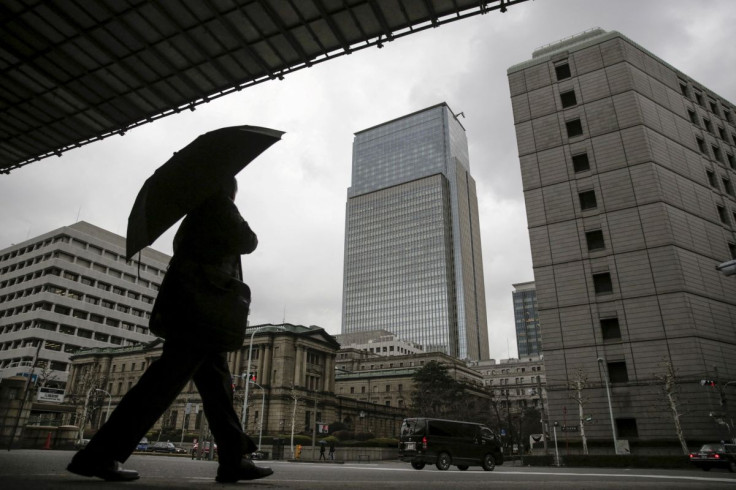Moving Against Global Tide, BOJ Set To Keep Ultra-low Rates, Dovish Guidance

The Bank of Japan is set to maintain ultra-low interest rates on Thursday and warn of heightening risks to the economy from soaring raw material costs, signalling its resolve to focus on boosting growth with massive monetary stimulus.
The BOJ's commitment to its zero-rate programme puts it at odds with major economies that are shifting toward tighter monetary policy, although inflation in Japan is expected to creep up towards the central bank's 2% target.
In quarterly forecasts due after the two-day meeting ending on Thursday, the BOJ will likely project core consumer inflation to accelerate near 2% in the fiscal year ending in March 2023, sources have told Reuters.
But the board is set to project inflation to moderate the following year, and warn of risks to the economic outlook such as from soaring raw material costs and China's slowdown.
With Japan lagging other advanced economies in pulling out from the COVID-19 pandemic's doldrums, the BOJ is expected to leave unchanged its -0.1% target for short-term interest rates and that for 10-year bond yields around 0%.
The central bank is also likely to make no major changes to its dovish guidance that pledges to ramp up stimulus if needed, and keep interest rates at current or lower levels.
"An expected rise in Japan's inflation rate will be mainly driven by rising costs and therefore unsustainable. There's no problem with maintaining monetary easing," BOJ Governor Haruhiko Kuroda said in a speech last week.
Speculation has been rife the BOJ could allow long-term rates to rise more or tweak its dovish policy guidance to combat yen declines, as some lawmakers fret further falls in the currency could hurt the economy by inflating import costs.
But Prime Minister Fumio Kishida said on Tuesday he hoped the BOJ will continue with its efforts to achieve 2% inflation, suggesting the government won't pressure the bank into hiking rates to stem yen falls.
Markets will focus on Kuroda's remarks at his post-meeting briefing for clues on whether and how soon the BOJ could modify its dovish policy guidance.
Japan's economic growth likely stalled in the first quarter and is seen only rebounding modestly in April-June, as caution over the pandemic and rising living costs hurt consumption.
Core consumer inflation, which hit 0.8% in March, is set to accelerate to around 2% from April, though the rise will be driven largely by rising fuel costs and the dissipating effect of past cellphone fee cuts - rather than from higher wages, or underlying demand.
© Copyright Thomson Reuters {{Year}}. All rights reserved.





















